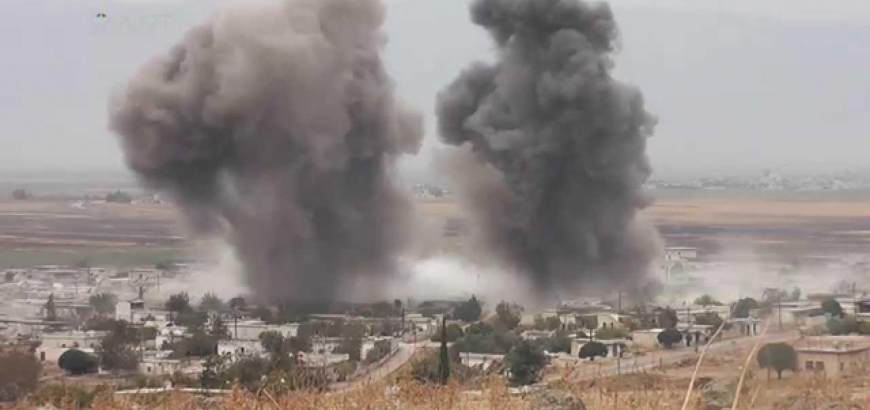Moscow is trying to involve its allies Kyrgyzstan and Kazakhstan, members of the Collective Security Treaty, to deploy special forces to monitor the de-escalation zones in Syria.
The story, which was published by the Russian Nezavisimaya newspaper at the end of last month, indicates that Moscow is facing a problem in involving other countries in military operations in Syria to achieve its interests through the de-escalation zones agreement.
The newspaper said that Russia was trying to drag the two countries’ forces into Syria. Kyrgyz President Almazbek Atambayev hurried to express the difficulty of the request and expressed his astonishment at the proposal, which he said had not been discussed with the Russian President Vladimir Putin.
Atambayev added that for such a proposal to work it would need the agreement of the Collective Security Treaty countries, a decision from the United Nations Security Council and finally approval from Kyrgyz parliament because Russia, Turkey and Iran were working to secure peace and security.
The position of the two countries on the Russian proposal indicates a number of points, most prominently the desire not to become involved in Russian interests and the fear of probable losses for the two parties in Syria, where major powers are in conflict. Atambayev alluded to this by saying that even if his country accepted the Russian proposal, the issue would be limited to sending a limited number of officers and volunteer soldiers only.
Russia fears an increase in military losses for its forces in Syria and therefore Putin intends to bring forces from countries with strong relations with Moscow, including the Chechens, which sent military police forces to eastern Aleppo which the opposition left at the end of 2016, while Russian soldiers remain in their military bases and others in areas more safe than in Syrian districts.
From another angle, the Russian proposal indicates the de-escalation zones agreement — whose details were developed in the Astana 5 talks on Tuesday — will still confront a number of problems in terms of the readiness of countries to deploy troops to these areas and bear the risks.
The Astana 5 talks started this week with bilateral technical preliminary meetings between the delegations. The Russian envoy to Syria Alexander Lavrentiev announced that the guarantor countries in the Astana 5 conference had agreed on “drawing the borders of the de-escalation zones in the Homs countryside and central Syria, and the Eastern Ghouta in the Damascus countryside.”
This article was translated and edited by The Syrian Observer. Responsibility for the information and views set out in this article lies entirely with the author.


